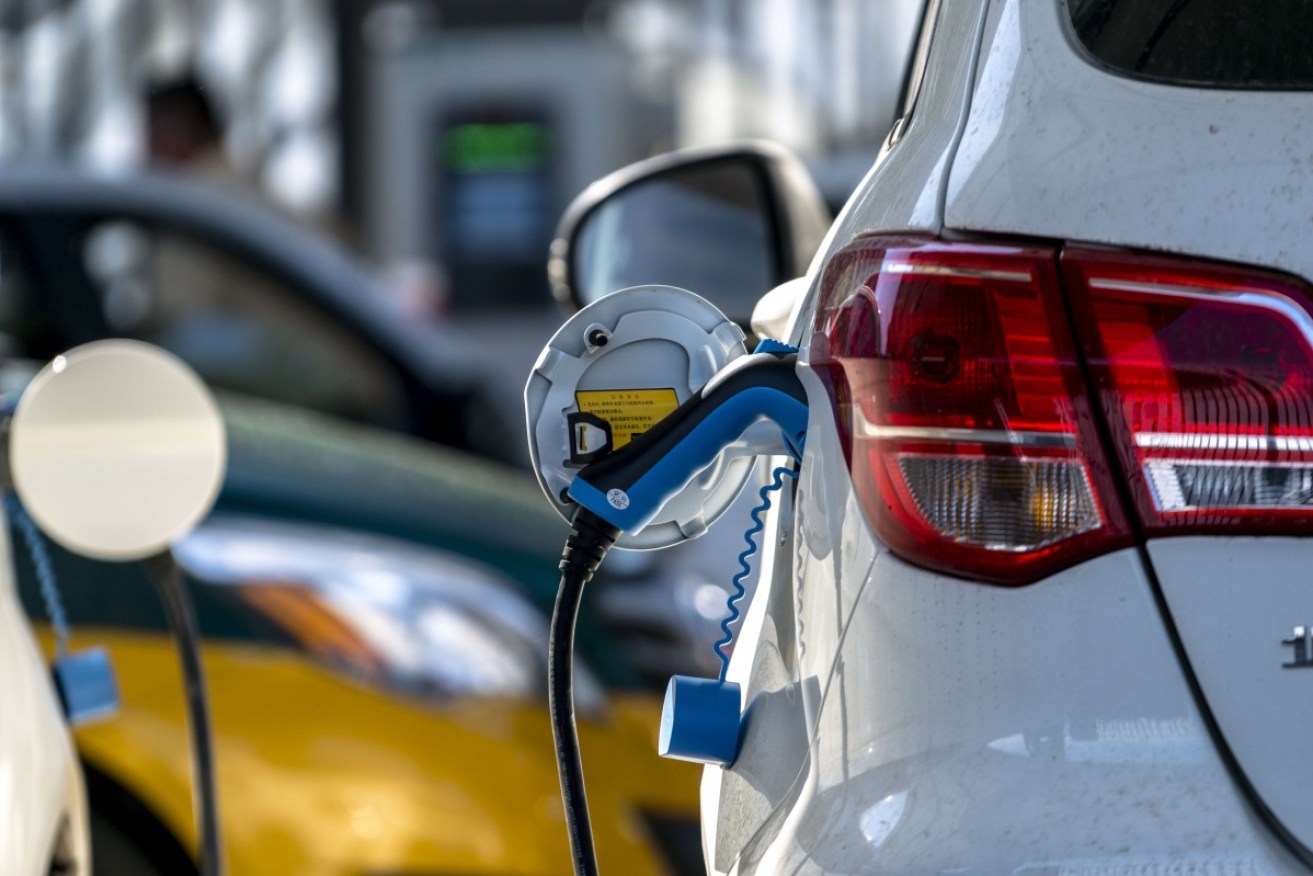Investment in Australian-made electric cars could help restart automotive industry, expert says


Could a national network of electric car charging stations push down EV prices? Photo: Getty
Australia’s collapsed car manufacturing industry could be revived if we began building electric cars on home soil, an industry expert says.
The declaration has sparked hope for thousands of former automobile workers left unemployed after Australia’s car manufacturing industry came to a screeching halt in 2017.
Electric Vehicle Council CEO Behyad Jafari said the biggest roadblock to kick-starting the industry again is our government’s slow uptake of investing in electric cars.
“The most difficult thing hasn’t been about realising the opportunities, but getting the government to come to the table,” Mr Jafari told The New Daily.
“In every other country, the governments are throwing themselves into this sector saying there are jobs.”

An electric car charges on the street at Westminster in central London. Photo: Getty
What are other countries doing?
Worldwide, the market for electric vehicles (EVs) is taking off.
The International Energy Agency (IEA) found in its 2018 report on EVs that growth was largely driven by government policy.
Such measures included financial incentives, new rules on carbon emissions and tightened fuel-economy standards.
In 2017, China announced a New Energy Vehicle mandate as part of its long-term plan to ban cars with traditional internal combustion engines.
The IEA reported China remains the largest electric car market in the world, with nearly 580,000 electric cars sold in China in 2017 – a 72 per cent rise from the previous year.
But by far the world leader in market share for electric cars was Norway, with the latest data showing EVs accounted for about half of new car sales.
The Norwegian government has promised that by 2025, only cars with zero emissions should be sold.
What Australian leaders say
Opposition Leader Bill Shorten recently announced Labor’s plan of ensuring 50 per cent of all new car sales are electric vehicles by 2030.
Prime Minister Scott Morrison, meanwhile, has slammed the plan, warning that Labor’s target would rid people of much-needed four-wheel drives and force them out of the “cars they love” into smaller, costly vehicles to cut carbon emissions.
Small Business Minister Michaelia Cash chimed in by threatening that Labor’s electric vehicles target would result in utes being taken away from tradies.
Michaelia Cash to save the utes. Johnny's car today wont be the one he drives tomorrow and claims 50% of the apprentices standing behind her will be driving an electric vehicle under Bill Shorten. #ausvotes #qldpol pic.twitter.com/Lzvd26vBGh
— David Marler (@Qldaah) April 9, 2019
That is despite Treasurer Josh Frydenberg openly voicing his support for electric vehicles in a newspaper column last year, in which he wrote a “global revolution in electric vehicles is under way” and that Australia needed to prepare with better development, infrastructure, targets and financial incentives.
And Environment Department officials revealed in Senate Estimates last week the government is factoring in 25 to 50 per cent share of electric vehicles in new vehicle sales by 2030.
At the same time, the government has been focusing on the production of batteries to export to other countries.
Supporters of local EV manufacturing, such as Mr Jafari, have questioned why Australia wouldn’t capitalise on the availability of raw materials to make cars locally.
“The raw materials are quite heavy and difficult to transport around the world,” Mr Jafari said.
“We’re letting companies take it overseas, but it would make a lot more sense for us to go down the value chain in Australia and assemble the batteries here.”
Manufacturers dispute PM’s claims
The Prime Minister has been challenged over his “fear-mongering” claims about EVs ruining weekend camping trips and costing Australians too much money.
For example, while the government claimed that Toyota HiLux drivers – Australia’s most popular car – would lose their vehicles under Labor, the company confirmed it was on track to offer an electrified version of all its models within six years.
Hyundai’s government relations manager Scott Nargar warned against “fear-mongering” on electric cars in the federal election.
Mr Nargar said that by 2025 Hyundai planned to have 38 eco models, such as the Kona electric SUV it released last month.
“That car’s got 449 kilometre real range, so it’s just like a normal car,” he said.
Even smaller companies seem to be keen on investing in EVs, even without federal government policies and financial support.
Queensland company ACE Electric Vehicles is already building a $40,000 two-door electric van.








